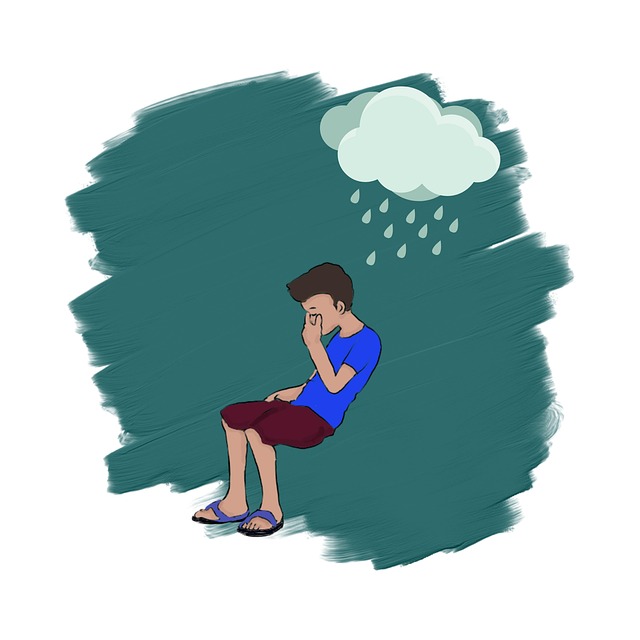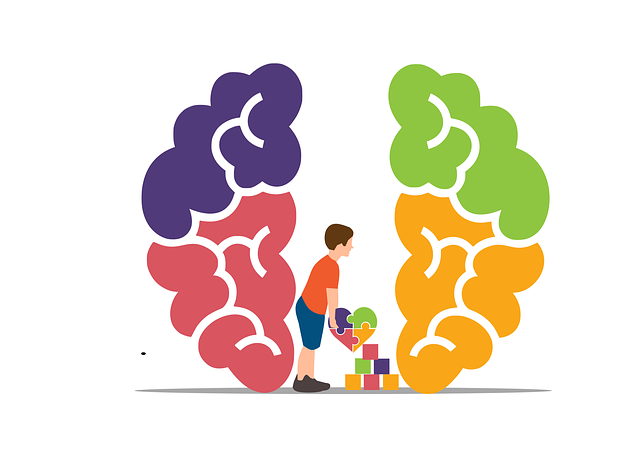Trauma significantly impacts emotional development in young Russian-speaking children, requiring culturally sensitive therapy. Effective strategies include safe expression spaces, evidence-based practices, and coping skill development through journaling or mindfulness techniques. Specialized programs address language barriers and cultural differences, offering individual or group therapy in Russian. Play therapy, family involvement, and holistic risk assessment empower kids to heal and thrive, ensuring optimal mental health outcomes.
Trauma support services are vital for fostering healing among young children, especially those from diverse linguistic backgrounds. This article explores the intricate landscape of trauma care, focusing on its impact on young minds and the unique challenges faced by Russian-speaking youth. We delve into the significance of language accessibility in therapy, highlighting specialized approaches tailored to their needs. By examining effective strategies, we aim to illuminate paths towards healing and support for this vulnerable population, ensuring every child receives the care they deserve.
- Understanding Trauma and Its Impact on Young Children
- The Importance of Language Accessibility in Trauma Therapy
- Specialized Services for Russian-Speaking Youth
- Effective Strategies for Providing Support and Healing
Understanding Trauma and Its Impact on Young Children

Trauma can have profound and lasting effects on young children, shaping their emotional and behavioral development. It’s crucial to recognize that trauma isn’t just a one-time event; it can result from chronic stress or repeated instances of adversity, leaving kids with complex feelings and responses. These experiences can manifest in various ways, such as fear, anxiety, aggression, or withdrawal, often impacting their ability to form secure attachments and learn effective coping skills.
Providing therapy for young children, especially those from Russian-speaking backgrounds, requires sensitivity and cultural competency. Therapists play a vital role in helping these children process and overcome trauma by offering safe spaces for expression. Incorporating evidence-based practices tailored to their needs, along with Burnout Prevention Strategies for Healthcare Providers, can enhance the effectiveness of treatment. Encouraging Mental Wellness Journaling Exercises or introducing Coping Skills Development activities can also empower children to manage their emotional well-being.
The Importance of Language Accessibility in Trauma Therapy

Trauma support services must prioritize language accessibility to ensure effective therapy for young children from Russian-speaking backgrounds. Effective communication is key in building resilience and fostering healing; therapists need to be proficient in both spoken and written Russian to connect with these clients on a deeper level. This linguistic alignment helps create a safe, non-judgmental space where children can express their experiences and emotions freely.
Integrating mindfulness meditation and mind over matter principles tailored for young minds can further enhance the therapeutic process. These techniques allow therapists to guide children in managing their trauma responses while teaching them valuable coping strategies. By combining language accessibility with evidence-based practices, trauma therapy becomes more inclusive and impactful, enabling Russian-speaking children to heal and thrive.
Specialized Services for Russian-Speaking Youth

For Russian-speaking youth who have experienced trauma, accessing specialized support services can be a game-changer. Many of these individuals may face unique challenges due to language barriers and cultural differences when seeking help for their mental health. Therefore, dedicated therapy programs tailored to their linguistic and ethnic background are essential.
Specialized services offer a safe space where young people can receive individual or group therapy sessions conducted in Russian. This approach ensures that they can openly discuss their experiences and work through trauma while maintaining cultural connections. Additionally, these programs often incorporate self-care routine development for better mental health, teaching valuable coping strategies and fostering resilience. By addressing the specific needs of Russian-speaking youth, these initiatives aim to reduce the stigma surrounding mental illness and encourage a healthy exploration of emotions, ultimately promoting their overall well-being.
Effective Strategies for Providing Support and Healing

Trauma support services for young children speaking Russian require a tailored approach that combines specialized therapy with cultural sensitivity. Effective strategies include play therapy, which allows children to express their experiences and emotions through play, making it accessible and non-threatening. This method is particularly beneficial for Russian-speaking children who may face language barriers or cultural differences in traditional talk-based therapies.
Additionally, incorporating family involvement is crucial. Family therapy sessions can help build a supportive network, enhance communication, and promote consistent care. This holistic approach addresses not only the child’s trauma but also strengthens the family’s ability to provide healing and resilience. Risk assessment for mental health professionals is essential to ensure safety and effective intervention, while stress reduction methods and inner strength development techniques can complement therapy, empowering children to cope with trauma and fostering their overall well-being.
Trauma support services are essential for the healing and development of young children, especially those from diverse linguistic backgrounds. By addressing the unique needs of Russian-speaking youth through accessible language therapies, specialized services can significantly enhance their recovery process. Understanding trauma’s impact and implementing effective strategies ensure that these children receive the best possible care. This tailored approach not only empowers them to overcome challenges but also fosters a supportive environment, ultimately promoting their overall well-being and resilience.








